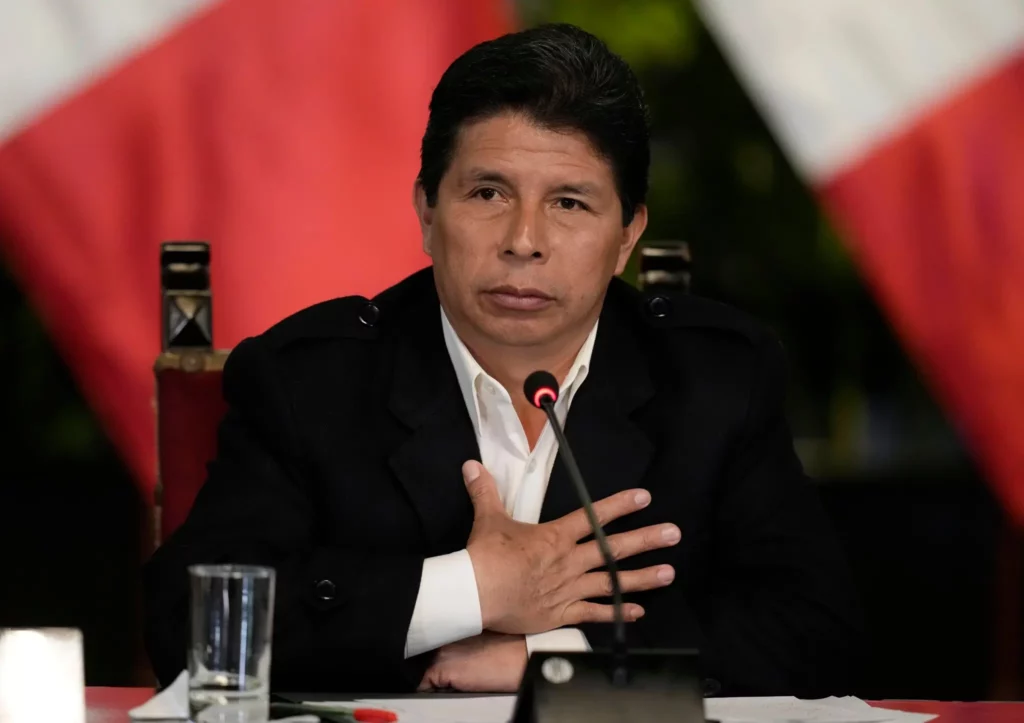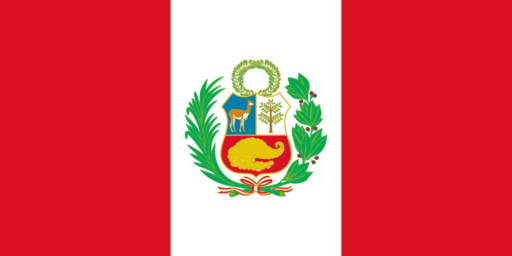Peru’s President Arrested After Attempting Coup
A novel concept. Will it catch on?

NYT (“Peru’s President Tried to Dissolve Congress. By Day’s End, He Was Arrested.“):
It was a day on which much of Peru was focused on Congress, where an impeachment vote was planned against the president on corruption charges.
But shortly before noon, the Peruvian leader addressed the country in a surprise televised address. He announced the dissolution of Congress and the installation of an emergency government, stunning political leaders across the spectrum, including his own allies, by effectively trying to carry out what was widely condemned as an attempted coup to cling to power.
Government officials resigned en masse. The top court declared the move unconstitutional. And the country’s armed forces and the national police issued a joint statement suggesting they would not support him.
By day’s end, Pedro Castillo, 53, was ousted from power and under arrest. Dina Boluarte, his vice president, was sworn in as president and became the first woman to lead Peru.
I would never have predicted that the day would come when Peru, of all places, was modeling better democratic behavior than the United States but, alas, here we are. This is what our Founders presumed would happen in the case of gross malfeasance by a President: everyone else in the system would rally in outrage over the transgression and promptly defend the Constitution.
This, which happened while I was in graduate school, is my lasting impression of Peruvian politics:
[H]is attempt to seize power echoed a similar move by former President Alberto Fujimori 30 years ago. Like Mr. Castillo, Mr. Fujimori was a populist outsider who was elected democratically in 1990. Two years later, he staged a coup to shut down Congress with the support of the military, and ruled as a dictator until 2000. He is now in prison on charges of corruption and human rights abuses.
But Peru has continued to be convulsed by years of high-level corruption scandals resulting in six presidents since 2016. Twice before during Mr. Castillo’s 16 months in power Congress had tried to oust him, but failed to garner enough votes for an impeachment.
Mr. Castillo was one of several leftists in Latin America who had been swept into power by votes disillusioned by the establishment, fed up with decades of inequality, high unemployment and an elite political class tainted by years of corruption and infighting.
But he appeared uninterested in making good on his campaign promises and was quickly confronted by a cascading stream of obstacles that paralyzed his administration, including high-level corruption scandals, criminal investigations and cabinet turnover.
Mr. Castillo churned through more than 80 ministers and filled many posts with political allies lacking relevant experience, some of whom have faced investigations for corruption, domestic violence and murder.
Prosecutors accused him of leading a criminal organization with lawmakers and family members to profit off government contracts and of repeatedly obstructing justice, sometimes seemingly in plain view — such as when his daughter disappeared from the presidential palace as she faced arrest and his office later claimed that footage that would have captured the moment went missing.
That all sounds vaguely familiar.






If there is a comparison to America, it’s how thin the veil Benito is cowering behind is.
Here? With today’s GOP?
BWAHAHAHAHAHAHAHAHAHAHAHAHAHAHAHAHAHAHAHA…. GASP…. WHEEZE… 10.000 unemployed comedians in this country and here you are giving it away for free.
Was just curious so I found this Wikipedia entry on “List of heads of government who were later imprisoned”
It is not unusual. And looking at the list, it is not just third world countries willing to throw criminal leaders into prison.
I think that a congress in the US that was committed to impeaching a president would carry out the same actions. The difference is that impeachment in the US is fan service for partisan loyalists and/or circus for the “indies.”